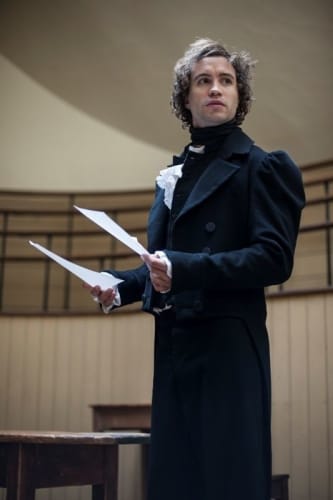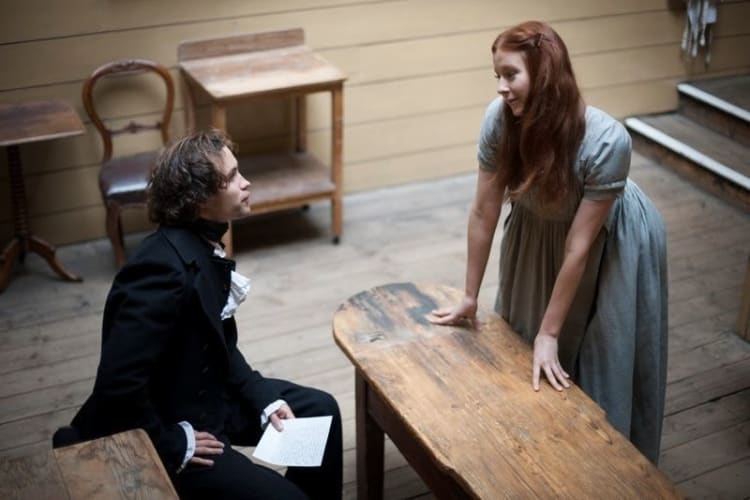Rebel Angel has been commissioned by The Keats-Shelley Memorial Association to mark the 200th anniversary of the publication of John Keats's first collection of poems.
Keats is much revered as a Romantic poet, and his short life—he died at age 25 having enjoyed little recognition—was one filled with loss and poverty, contributing to the portrait of him as a tragic genius.
This biographical play is presented at The Old Operating Theatre Museum in the garret of St Thomas' Church, part of London's old St Thomas' Hospital.
The Operating Theatre, accessed via the tiny spiral staircase of the Church's bell tower, provides an atmospheric and appropriate setting since the action of the play starts in the early 1800s when Keats was studying medicine at Guy's Hospital, having been successfully apprenticed to an apothecary.
Three roistering medical students arriving at the Operating Theatre discussing the procedure they are required to study is insufficient to prepare for the discomfort of its enactment. The role of the young Keats during the operation is to hold down the screaming lad as his crushed leg is amputated, and even without a drop of stage blood it is hard to watch.
More drama follows when Keats, anticipating the death of the young patient, confronts the surgeon with allegations of ineptitude but the conflict goes no further than as a vehicle to show Keats in a good and caring light.
This is typical of the action in Rebel Angel. Scenes dramatise episodes of Keats's life that contribute to his decision to give up medicine and a degree of wealth for poetry and almost certain poverty but, lacking a binding narrative, the play is less than the sum of its parts.
Time is given over to an incident with grave robbers haggling over the price of a corpse and another with Keats's influential experience of seeing Edmund Kean on stage in which we get Shylock's "Hath not a Jew eyes?" speech and more besides, but a scene with Leigh Hunt, poet, editor of then political paper The Examiner, supporter of Keats and the person who introduced him to Percy Bysshe Shelley, would have been more interesting if not also more revealing.
Since the action of the play finishes as Keats leaves hospital life to have a new beginning as a poet, most of his canon is yet to be written so we are given very little of his poetry and hearing the whole of On First Looking into Chapman's Homer is a treat.
The play is delivered by a small but talented cast who, with the exception of Jonny Taylor as Keats, take on three or more roles.
Fred Fergus, Max Marcq and Tom Palmer are principally Keats's charmingly youthful fellow students whilst Peter Broad is old fashioned and grumpy as Keats's critical and parsimonious trustee. Polly Edsell shows the early makings of a character actress.
Notwithstanding some strong character portrayals, the greater part of Rebel Angel's appeal is the setting of The Old Operating Theatre, directed for the venue by its author, Angus Graham-Campbell. For me, Keats super-expert Graham-Campbell does a better job as a director than as a playwright and I shall remember Rebel Angel mostly for the novelty of its setting.

